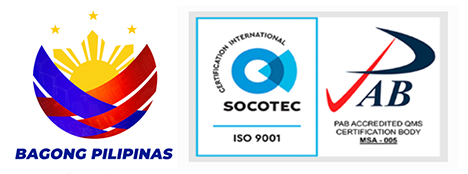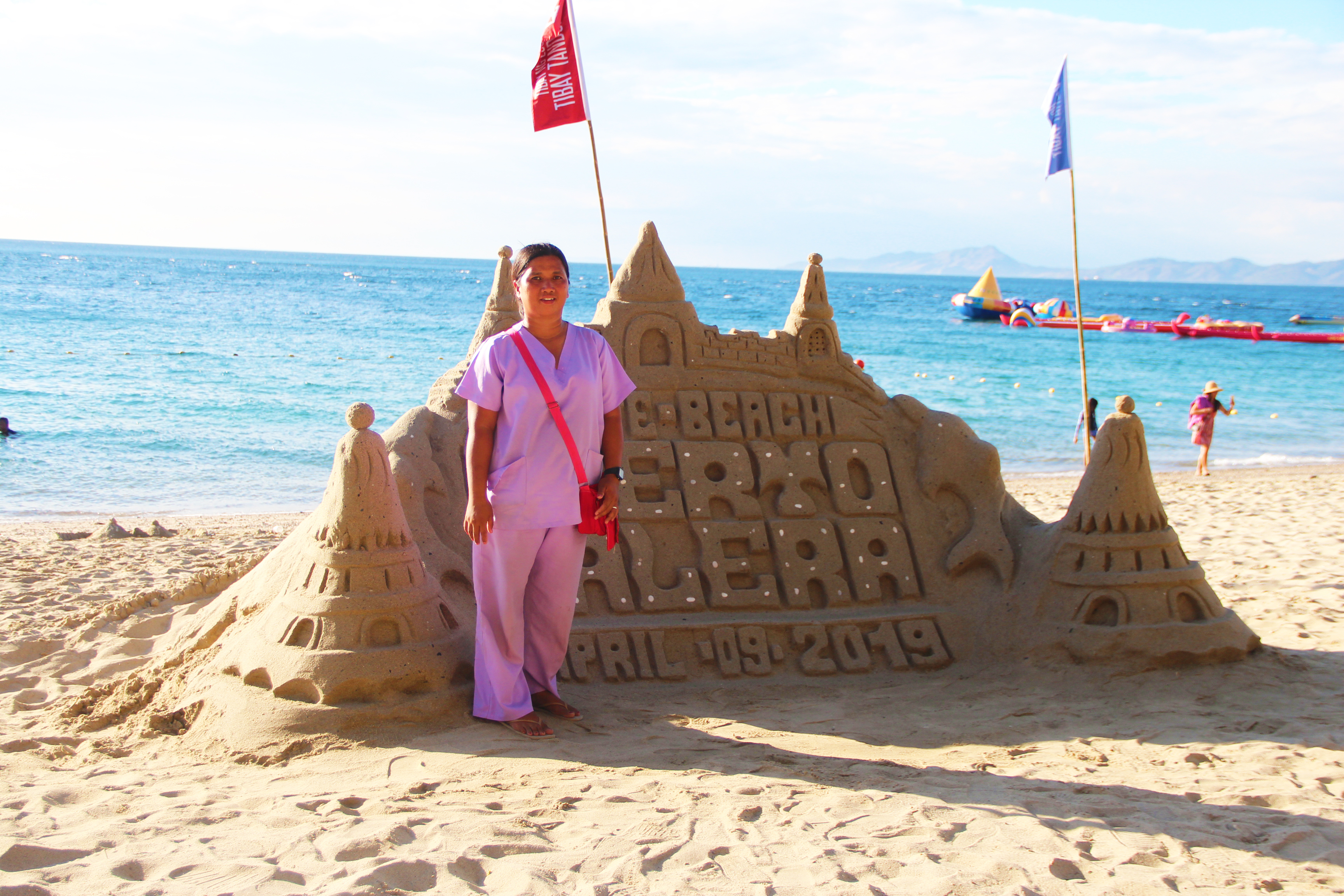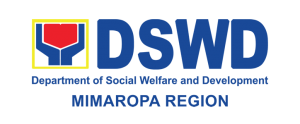“Dito kasi sa trabaho ko, hawak ko ang oras ko. Hindi naman kasi lahat ng gustong magtrabaho ay applicable sa kanila ‘yung sabihin mong normal na office hours. Tulad ko na mayroong tatlong anak, hindi kakayanin ng oras ko na magfull-time lalo at nagtatrabaho din ang asawa ko. Walang mag-aasikaso sa mga anak namin. Kailangang gumawa ako ng paraan kung paano ako kikita na hindi napapabayaan ang mga anak ko. Naging posible ‘yan nang makapag-training ako sa SLP,” said Daisy Masendo, a Sustainable Livelihood Program (SLP) beneficiary and a massage therapist in Puerto Galera, Oriental Mindoro.Despite the fact that a large number of Filipinos out-migrate to earn for a living, many Filipinos like Daisy still choose to settle in the country to seek for job opportunities even if the income is way lower, sometimes do not offer enough compensation. This manifests that priorities and considerations vary among individuals. In Daisy’s case, she has to find a job that has flextime and near her house so she can still take good care of her children. Wish granted for her when she entered SLP.
Daisy, 36 years old, works as a massage therapist for more than a year in White Beach Resort, a modest beach front in Puerto Galera, Oriental Mindoro. Back in January 2018, she was given an opportunity to be a trainee on massage therapy through the intervention of SLP. Even before getting her National Certificate (NC) II, she was already accepting massage services along with her sisters who are also therapists. “May araw talaga na kahit maraming tao wala talagang gustong magpamasahe. Pag walang massage, nagbe-braid na lang,” she narrated.
“Dito sa Puerto [Galera], mayroon kaming asosasyon ng lahat ng masahista. Dati higit sa isandaan kami pero ‘yung iba tumigil na kaya 80 na lang kami ngayon,” narrated Daisy. “Isang requirement ng asosasyon ay ‘yung magsuot kami ng uniform, may color coding bawat araw para makilala kami na kapag nakasuot kami ng ganitong uniform eh malaman na lehitimong masahista kami dito. Pagkakakilanlan kumbaga,” she added. They apply for business permit worth Php 550.00 in the barangay yearly. They are also required to have sets of uniform for a week.
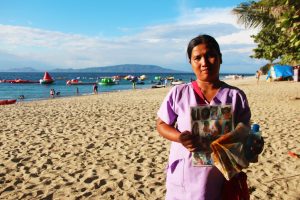 Daisy starts her day at six o’clock in the morning. She walks around the beach yelling “Sir, Ma’am, pa-massage na po kayo. Pa-braid po kayo,” while holding a piece of laminated catalog of various braided hairstyles where customers can choose from. This is her everyday script to ask for customers to avail the massage and braid services she offers. She usually wraps up the day at five in the afternoon and rushes her way home to prepare for dinner. “Pag peak season at maraming nagpapamasahe e 12 am na ako umuuwi. Sinasamantala ko lang yung pagkakataon na maraming customer at bibihira lang naman ito. Kelangan kumayod,” she said. During this season, she can accommodate ten customers for the whole day. The hourly rate of massage for Filipinos is 300.00 and 500.00 for foreigners since they have bigger body built. She provides for the beach towel, scrub suit, massage oil, alcohol, and sphygmomanometer for the customer.
Daisy starts her day at six o’clock in the morning. She walks around the beach yelling “Sir, Ma’am, pa-massage na po kayo. Pa-braid po kayo,” while holding a piece of laminated catalog of various braided hairstyles where customers can choose from. This is her everyday script to ask for customers to avail the massage and braid services she offers. She usually wraps up the day at five in the afternoon and rushes her way home to prepare for dinner. “Pag peak season at maraming nagpapamasahe e 12 am na ako umuuwi. Sinasamantala ko lang yung pagkakataon na maraming customer at bibihira lang naman ito. Kelangan kumayod,” she said. During this season, she can accommodate ten customers for the whole day. The hourly rate of massage for Filipinos is 300.00 and 500.00 for foreigners since they have bigger body built. She provides for the beach towel, scrub suit, massage oil, alcohol, and sphygmomanometer for the customer.
“Hawak ko oras ko. Pupunta ako ng umaga [sa beach] tapos uuwi ng gabi. Malapit lang naman bahay namin dito. May time ako makapag-asikaso ng anak kaysa aalis pa para mag-abroad. Mas pinili ko ito dahil walang amo. Sakin lang ang kita ko,” she answered when asked about her reasons for choosing a job with a flexible schedule. “May araw na hindi ako pwede lumabas dahil kelangan ko mag-alaga ng bata, mag-asikaso. Tapos ‘pag may tumawag eh isa o dalawang oras lang naman, ihahabilin ko muna ang bata. Kung may amo ako eh hindi pwede. Ang nag-aalaga ay ‘yung anak kong panganay na 13 years old. Naturuan ko naman paano mag-alaga. Papakainin lang naman basta may luto na kaya na nila,” she added. Daisy stressed the importance of instilling independence to her children at a very young age especially that they are working parents. “Yung asawa ko naman eh ang trabaho niya nasa malapit lang. kapag break sinisilip-silip niya. Sanay sanay lang kelangan matuto at nagtatrabaho parehas kaming mag-asawa,” she explained.
“Yung kita nagagamit sa pagkain, baon ng estudyante, bayarin tulad ng kuryente at tubig, pati hulog sa card. Kapag mahirap ka, doon lang naman talaga umiikot ang kita mo eh,” Daisy enumerated where she uses her income from massage. Having another source of income helped the family provide for their daily expenses.
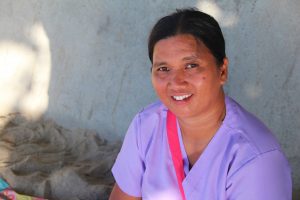 Daisy also explained the importance of resource allotment for a job like hers with no fixed income per month. “Ang sistema eh ‘yung araw na marami kang kinita e titipirin mo ‘yun para sa mga araw na wala kang kita. Sariling pagtitipid. Ikaw na lang ang magba-budget. Hindi ‘yung ubos-ubos biyaya. Kunyari kumita ka ng malaki ngayon, bibilhin ko na lahat ng pangangailangan tulad ng grocery, pagkain, mga basic needs. Tapos kunyari kinabukasan eh kumita ulit ako, ilalaan ko naman para sa school ng bata. Sa gantong paraan, hindi na ako mamomroblema kasi may bigas na, may pang-ulam na,” she expounded.
Daisy also explained the importance of resource allotment for a job like hers with no fixed income per month. “Ang sistema eh ‘yung araw na marami kang kinita e titipirin mo ‘yun para sa mga araw na wala kang kita. Sariling pagtitipid. Ikaw na lang ang magba-budget. Hindi ‘yung ubos-ubos biyaya. Kunyari kumita ka ng malaki ngayon, bibilhin ko na lahat ng pangangailangan tulad ng grocery, pagkain, mga basic needs. Tapos kunyari kinabukasan eh kumita ulit ako, ilalaan ko naman para sa school ng bata. Sa gantong paraan, hindi na ako mamomroblema kasi may bigas na, may pang-ulam na,” she expounded.
Also, Daisy and her co-workers make sure to contribute to the maintenance of the beach. Their association, along with the barangay officials, signed a resolution pertaining to the cleanliness of the beach. “Para makatulong sa kalinisan ng beach, yung asosasyon namin eh may regulation na dapat lahat ng masahista ay mag-contribute ng 100.00 sa loob ng tatlong buwan para magbayad sa tagalinis ng beach. Ito ay usapan kasama ang barangay, tulong sa pagpapanatili ng linis ng lugar,” she explained.
The story of Daisy proves that the program is true to its objective to create an enabling environment for accessing income-generating opportunities to address basic needs, thereby improving the socio-economic well-being of its participants. “Malaking tulong ang SLP dahil napagkakakitaan ko talaga lahat ng natutunan ko sa training. Hindi nasayang ang ginastos sa akin ng gobyerno,” Daisy said. ###
![]()

